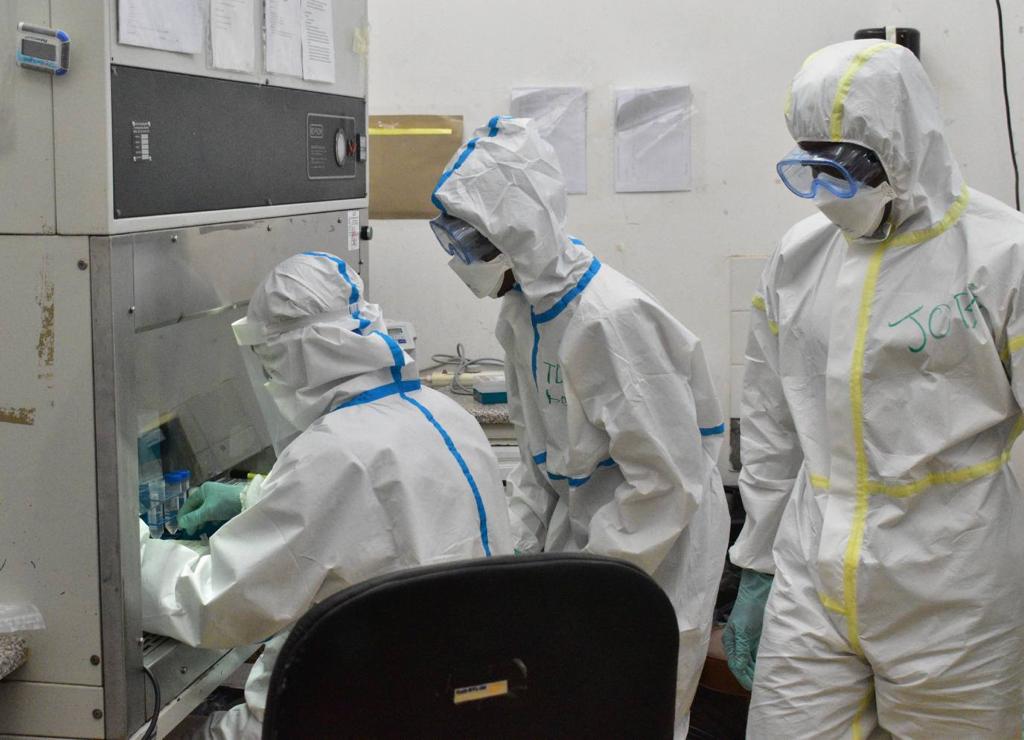There is a potential surge of Covid-19 in Africa, as some countries are now reporting upward trends, a situation more likely to be worsened by the start of winter in the southern region, the World Health Organisation (WHO) Regional Office for Africa has said.
Another concern for Africa is the Covid-19 variant first detected in India – B1617 – that caused a catastrophe there, has been detected in Kenya and Uganda while the continent’s vaccine coverage is the lowest in the word, accounting for only one percent of vaccines administered.
WHO says of the 37 million vaccine doses shipped to the continent, only about half have been administered to people.
“Like the rest of the world, we are observing with great concern the heart-breaking situation in India. Here in Africa there’s a potential in surge of cases. South Africa just reported 2 000 cases overnight, which is an increase of several 100 over the day before and 10 other countries are reporting an upward trend. With the start of winter in southern Africa, we may well see further increases in the sub region.”
WHO Regional Director for Africa, Dr Matshidiso Moeti, at a Thursday press conference on how African countries are preparing for a resurgence of Covid-19.
To date, Africa has recorded almost 4.6 million confirmed Covid-19 cases and 123 000 deaths.
Dr Moeti said African countries such as Botswana and Ethiopia wee having their intensive care capacities pushed to their limits and it seemed new variants of Covid-19 were driving cases up.
“As WHO, we are strengthening the sequencing to detect these mutations. So far 42 African countries have reported more than 14 000 sequences of variants. B117 and B1351 respectively have been reported in 23 countries. The variant of interest B1617, first detected in India has now been reported in Uganda and Kenya. There is a fear that B1617 may be more transmissible than other variants circulating in our continent. We need to be more vigilant.”
Dr Moeti said as for vaccine efficacy against the B1617 variant, analysis would come after vaccine rollouts in India, as she pointed out African countries were receiving the same vaccine supplied by India under the COVAX facility.
“We will see vaccine efficacy if countries decided to use other vaccines but vaccines produced for COVAX facility in India is what is going to be available in African countries, then real data will come from the Indian experience from rolling out this vaccine,” she said.
The WHO regional director said with delays and shortages of vaccine supplies, African countries are slipping further behind rest of the world.
“Vaccine rollout now accounts for only one percent administered worldwide, down from two percent a few weeks ago,” Dr Moeti said.
“While shipments of vaccines have been ground temporarily to halt, slowed down African countries also need to step up and do their part. Only about half of the 37 million doses shipped to the continent have been administered. So far we need to get the available vaccines into peoples arms fast.”
The WHO regional director said with new variants circulating, low vaccination levels, population fatigue in adhering to measure and easing of restrictions, these conditions were ripe present for a resurgence.
“What’s happening in India must not happen here. If we prepare now we will not pay the price later. As WHO, we are supporting countries heighten preparedness activities. Of great concern is the management of severe and critical Covid-19 patients although capacities have improved over the past year,” Dr Moeti said.
She added there are still shortages of oxygen supplies, “whereas high income countries have at least two income care beds per 100 000 people, only nine countries in Africa have this many.”
Dr Moeti stressed investment in delivery capacities to mobilise people and resources were needed to roll out vaccine campaigns in every province including partnering with private sectors.
“In the coming months, supply shortages mean there is risk, as timeliness of doses may be suboptimal to protect people from severe disease and death. We recommend that countries prioritise the first dose for many high risk population as soon as possible in the shortest amount of time,” she said.
“The current constraints can be addressed quickly, if countries with surplus supplies share doses with those in need. We welcome pledges by several high income countries to donate doses. We hope the timelines of these doses can be brought forward and actioned soon as possible.”

